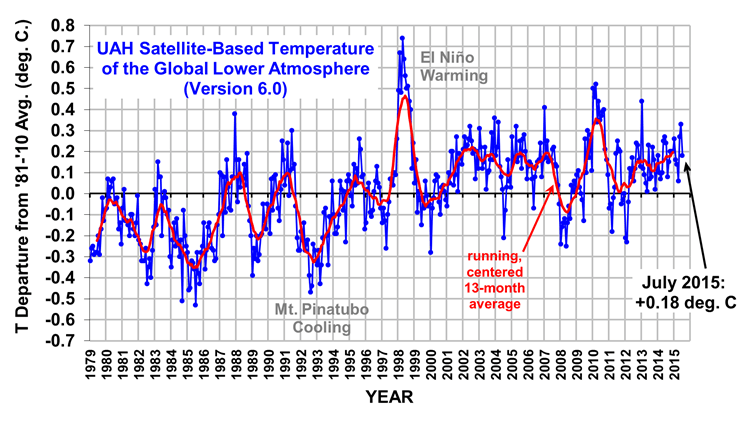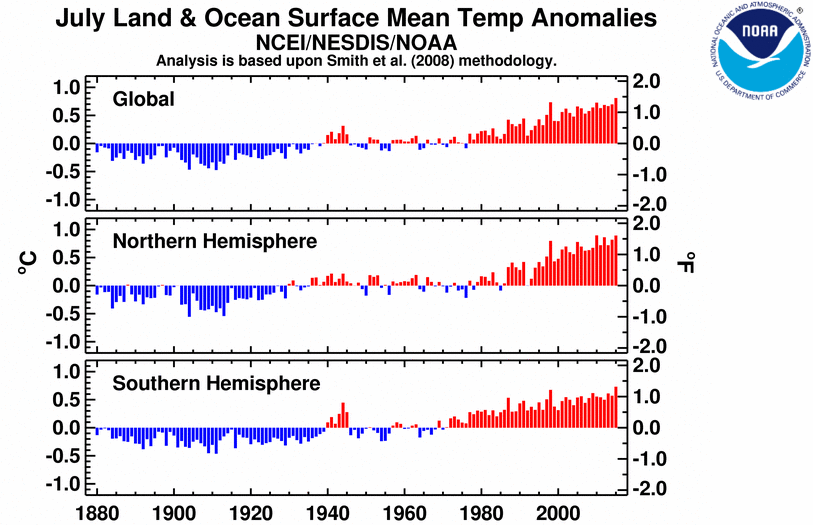dphantom
Diamond Member
- Jan 14, 2005
- 4,763
- 326
- 126
I see nothing that allows you assume a temperature anomaly for the troposphere can be directly compared the surface, or to the stratosphere, or ocean for that matter. Not without knowing which datasets and whether they are using: TLT T2 T3 T4 ( BTW did you ever find the link to sea level rise plot I asked you for?)
Now you are being deliberately obtuse. The UAH/RSS temp chart is TLT. I stated that quite clearly. And the anomalies can be compared against HADCRUT and other surface temp datasets.
As for sea surface rise, there is a very good paper from 2011 linked below.
http://www.jcronline.org/doi/pdf/10.2112/JCOASTRES-D-10-00157.1
In case you do not want to actually read the whole thing (it is a short peer reviewed paper with not too much math), below is the conclusions section.
CONCLUSIONS
Our analyses do not indicate acceleration in sea level in U.S.
tide gauge records during the 20th century. Instead, for each
time period we consider, the records show small decelerations
that are consistent with a number of earlier studies of
worldwide-gauge records. The decelerations that we obtain
are opposite in sign and one to two orders of magnitude less
than the
tide gauge records during the 20th century. Instead, for each
time period we consider, the records show small decelerations
that are consistent with a number of earlier studies of
worldwide-gauge records. The decelerations that we obtain
are opposite in sign and one to two orders of magnitude less
than the
+0.07 to +0.28 mm/y2 accelerations that are required to
reach sea levels predicted for 2100 by Vermeer and Rahmsdorf
(2009), Jevrejeva, Moore, and Grinsted (2010), and Grinsted,
Moore, and Jevrejeva (2010). Bindoff et al. (2007) note an
increase in worldwide temperature from 1906 to 2005 of 0.74uC.
It is essential that investigations continue to address why this
worldwide-temperature increase has not produced acceleration
of global sea level over the past 100 years, and indeed why
global sea level has possibly decelerated for at least the last
reach sea levels predicted for 2100 by Vermeer and Rahmsdorf
(2009), Jevrejeva, Moore, and Grinsted (2010), and Grinsted,
Moore, and Jevrejeva (2010). Bindoff et al. (2007) note an
increase in worldwide temperature from 1906 to 2005 of 0.74uC.
It is essential that investigations continue to address why this
worldwide-temperature increase has not produced acceleration
of global sea level over the past 100 years, and indeed why
global sea level has possibly decelerated for at least the last
80 years.








